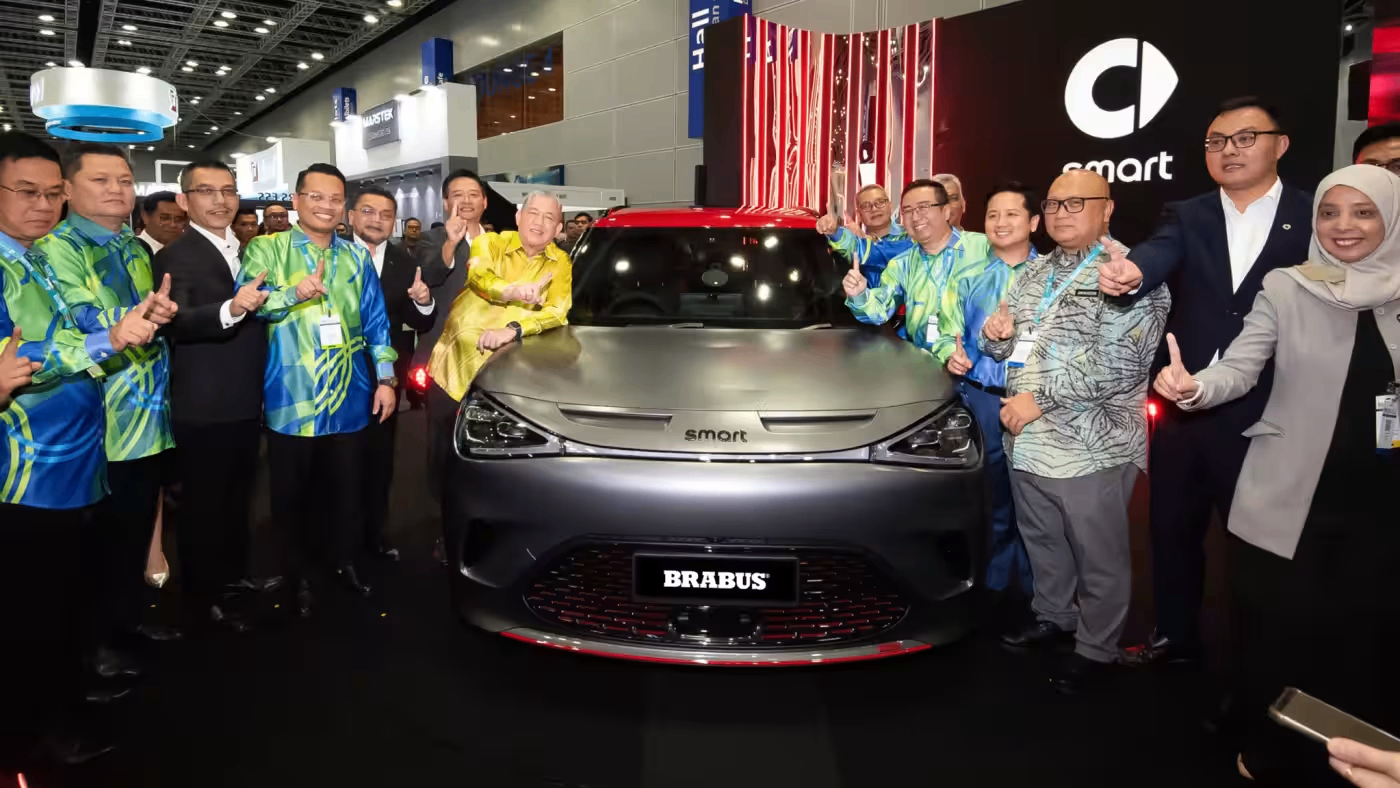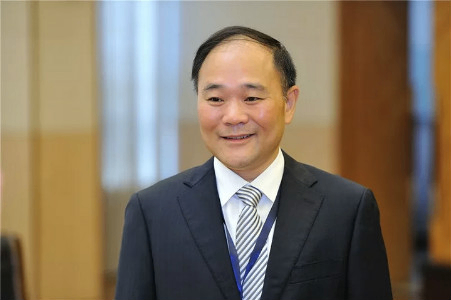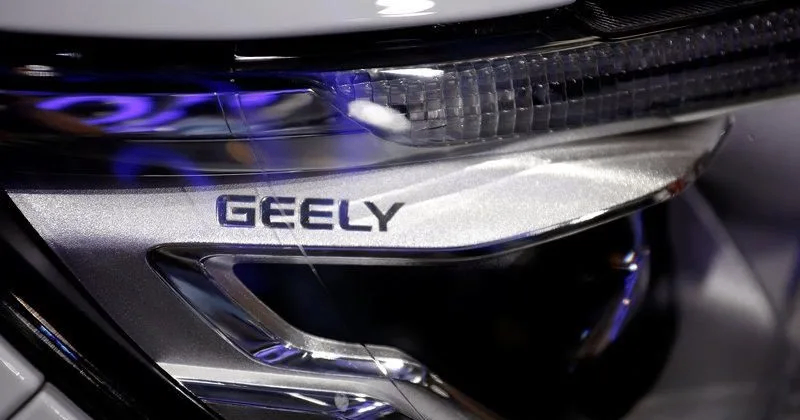Geely makes good money: Southeast Asia electric vehicle market ushered in "10 billion subsidies"
Geely is spending $10 billion to build an electric vehicle center in Malaysia, hoping to gain a foothold in the Southeast Asian market.。
Chinese automaker Geely has partnered with Malaysia's Proton to invest $10 billion in Malaysia to make a comeback in the Southeast Asian electric vehicle market.。
One heart to Ma Jili can create another story?
At the Malaysia International Auto Expo held in Kuala Lumpur last month, one of the biggest highlights was the electric car from the Smart brand (a global joint venture between Geely and Mercedes-Benz)。The model on display is also the first electric car sold by Proton Motors. A subsidiary of Proton has been accepting bookings for this compact car since September, with the goal of starting delivery by the end of the year。
Last year, Proton reached an agreement with Smart to become the official distributor of the brand's electric car in Malaysia and Thailand.。
In September this year, the two sides signed a memorandum of cooperation, which will combine the advantages of resources to deepen cooperation in all aspects, including but not limited to exploring the feasibility of "building overseas production capacity" and assembling electric vehicles at the Proton plant in Malaysia.。At the same time, Smart Genie # 1 Malaysia right-hand version has also opened pre-sale, scheduled for official delivery in the fourth quarter of this year。

In fact, Geely has been in Malaysia for a long time.。
Proton was founded in 1983 under then Malaysian Prime Minister Mahathir Mohamad with the goal of establishing a state-owned car company.。Mitsubishi Motors was the original investor in Proton, but due to poor earnings, the two sides dissolved their capital relationship in 2004。
In 2012, Malaysian conglomerate DRB-HICOM took over Proton。In 2017, Zhejiang Geely Automobile Holding Group acquired Proton 49.9% of the shares, to become the exclusive foreign strategic partner of Proton Motor, to provide management and technical support。Proton then launched its popular sport utility vehicle (SUV), boosting its domestic market share from a dozen percentage points to 20 percent and turning itself from a company that lost nearly $2 billion a year to one that has been profitable for the past three consecutive years.。
It is reported that Geely's goal is to cultivate Proton into one of the three major car brands in Southeast Asia。Electric vehicles are essential to achieving this goal, so the group is working to train 5,000 talents in the new energy vehicle field within five years to support Proton's rapid growth, all of which indicate that the Chinese automaker wants to expand its electric vehicle business throughout Southeast Asia.。
It is difficult to buy "two-way rush" for tens of billions of investment.?
Geely has been keeping a low profile in the Asian electric car market outside of China。But last month, Geely Chairman Eric Li expressed his enthusiasm for the Southeast Asian market: "We are very optimistic about the market prospects of Southeast Asian countries and will work together to build regional economic integration through high-quality development."。"

In July this year, according to the Malaysian National News Agency, Geely will invest $10 billion to build Malaysia's Perak state Tanjung Malim into a "high-tech valley for automobiles."。Malaysian Prime Minister Anwar Ibrahim said Gili had conveyed the plan to him in a letter and that the investment would create thousands of jobs in Malaysia.。
In the past, the Malaysian government has mainly supported its own car brands through incentives, leading the local auto industry to focus more on the domestic market.。
In September, the Malaysian government announced the New Industrial Master Plan 2030, which prioritizes electric vehicles.。By then, electric vehicles will account for 15% of Malaysia's total car sales, and the country's target also includes exports.。
Statistics show that Proton and Perodua, a local Malaysian automaker, together account for about 60% of the domestic market share.。But of the 141,432 vehicles sold last year, Proton exported only about 4 percent.。
Geely says the center will be home to R & D and manufacturing。To create one of Southeast Asia's leading automotive hubs, suppliers from China and Malaysia will be encouraged to open plants in the region.。Thus, Geely's strategy coincides with the Malaysian government's industrial agenda。
Moreover, Malaysia has a population of 33 million and a relatively small land area, so the development of the local auto industry naturally needs to expand overseas.。This reality, in turn, coincides with Geely's ambition to expand its Southeast Asian operations.。
Thai Prime Minister Srettha Thavisin said last month that Proton was considering setting up an assembly plant in Thailand.。It seems that while developing Malaysia's electric vehicle industry, Proton also hopes to use the supply chain of Thailand, Southeast Asia's largest car producer。Elsewhere, the Malaysian government is promoting Perodua's transition to electric vehicles through the merger of two domestic conglomerates.。
Who can win the battle of Southeast Asia??
However, Geely and Malaysia will face competition from other EV makers in the region.。
Sources revealed that in addition to Geely, BYD's first overseas plant has landed in Thailand in September 2022 and is expected to be put into operation next year, with a planned annual output of 150,000 vehicles, which will radiate the entire Southeast Asian market.。
In March this year, Nezha Motor's first overseas plant, the Thai plant, was laid as the company's main manufacturing base for right-hand drive electric vehicles for export to Southeast Asia.。In May, SAIC Zhengda Thailand New Energy Industrial Park laid the foundation and will focus on the localized production of key components of new energy vehicles.。
In addition to the Chinese car companies themselves for the Southeast Asian market, the offensive of Japanese and Korean car companies should not be underestimated.。
In the past, in the era of fuel vehicles, Japanese and Korean cars accounted for most of the market share in Southeast Asia.。Malaysia Proton Motor CFO Wang Huaibing said that Southeast Asia is dominated by Japanese cars, accounting for about 80%。As Japanese cars have been deeply cultivated in Southeast Asia for many years, they have a complete layout from upstream supply and downstream insurance finance, and occupy a "monopoly position" in the formulation of local industrial policies, including the Southeast Asian market.。
In this case, the American consulting firm Arthur D..Akshay Prasad, Little's senior project manager, said: "This is a challenge for Geely, and Geely doesn't have any first-mover advantage yet.。"
But with the advent of the new energy era, Chinese car companies are accelerating the development of the Southeast Asian market with leading electric vehicle production and sales experience and competitive products.。
In July this year, the latest data released by the world's leading research company Counterpoint showed that China's electric vehicle sales accounted for 75% of the Southeast Asian electric vehicle market, significantly ahead of competitors in other countries and regions。
The world's leading market analysis agency Canalys released a research report saying that the core region of China's auto exports is gradually shifting from the past "irregular regions" such as Africa, Central Asia and South Asia to "economically developed" and "auto industry developed regions" such as Europe and Southeast Asia.。
Canalys also expects that in the next 10 years, the overall automotive market in Southeast Asia will enter a period of rapid development.。Coupled with the construction of the China-ASEAN Free Trade Area and the Regional Comprehensive Economic Partnership Agreement (RCEP) and other favorable factors, the penetration rate of Chinese automotive products, especially new energy products, in the Southeast Asian market will be further enhanced.。By 2025, the penetration rate of Chinese automotive products in Southeast Asia is expected to increase from 2% in 2022..6% to 12.8%。
Even if Geely does not launch an onslaught on its way into Southeast Asia, Japanese automakers have already felt China's offensive in Southeast Asia's electric vehicle sector, and this competition has weakened Japan's overwhelming regional share of gasoline vehicles。
"Geely's strength is troubling because of its deep pockets," said an executive at a major Japanese car company in Malaysia.。

·Original
Disclaimer: The views in this article are from the original Creator and do not represent the views or position of Hawk Insight. The content of the article is for reference, communication and learning only, and does not constitute investment advice. If it involves copyright issues, please contact us for deletion.